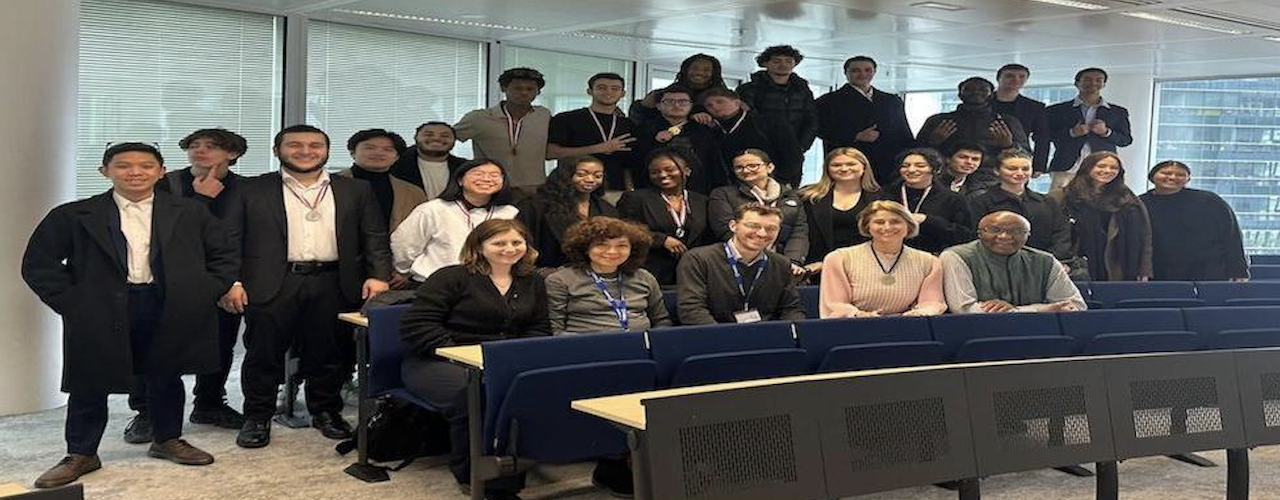
Extending the Classroom

Student Experiential Learning that Serves the Community
Dr. Spears designs and teaches courses that provide students real-world experience. In one course, students conduct security risk assessments for community-based, non-profit organizations. In another, students design, build, and implement web applications for clients. In exchange, students gain valuable experience.
Prospective organizational partners are invited to contact me.

Mentoring CS, Cybersecurity, and IS Students
Students benefit from career mentoring on how to build professional networks; enhance skill development; volunteer their skills to those in need; and gain entry into the workforce. Dr. Spears engages in organizing and mentoring students at events, such as the Grace Hopper Celebration, WiCyS, PhD Project ISDSA, etc. The goal is to further prepare students for the workforce while applying their skill for good.

Guest Lecturer in France and England
Parlez-vous francais? It's been an honor and delight serving as guest lecturer at Ecole de Management Strasbourg, BBA INSEEC in Lyon, Bordeaux, and Paris, and at Omnes Education's London School, where I've taught information security, digital privacy, and business subjects.
Invitations to similar engagements are welcomed, as well as online projects between DePaul and international students.
Courses I Teach
CSEC 340, CSEC 440, IST 445, IST 636, and IST 656 are cybersecurity courses I've taught for over 10 years.
Sample course description: This course is a survey of the fundamental elements of computer security and information assurance. Topics covered include access control; encryption; web application security; network security; and online privacy. Ethical hacking techniques are used in course labs as a means to illustrate common attack/defense methods found in systems. Security podcasts and news are used to further raise awareness of security risk to organizations, society, and technology users.
CSEC 390/490 and IST 698 are the course numbers for an experiential learning course I created in partnership with DePaul's Steans Center for Community-based Service Learning.
Course Description: This service learning course prepares students with real-world experience by partnering with a non-profit, community-based organization to identify information security vulnerabilities and propose recommendations that improve the organization’s security and privacy practices. Within the context of an assigned community-based organization, students will work in teams to conduct a vulnerability assessment; identify and propose cost-effective security safeguards that may be administrative, technical, or physical; define a plan to test, monitor, and train system users on recommended security safeguards, and; document project deliverables for the organization’s management. The course emphasizes hands-on exercises and student reflection on a community-based term project.
CSC 394/IS 376 is an experiential learning capstone course for computer science and information systems undergraduate students.
Course Description: This capstone course is an undergraduate senior project for computer science and information systems majors that requires students to apply their prior learning in project management, systems design, systems development, and systems implementation of a real-world web application for a client. Using the agile methodology for software development, students will work with their client organization to define the scope, functionality, and design features of the software. Students will then develop the software in a series of short “sprints” whereby student teams produce a protype of parts of the system design; gain feedback from the client; and either improve on that portion of the prototype or move on to the next portion of the system’s design. Students will use project management software as an integral part of team role and task assignments toward a finished software product. Students gain experience developing a usable software product by the end of the course that reasonably meets software requirements that students gathered early in the course.
CNS 477, CSEC 228, and IS 511 are courses I've taught that deal with social, ethical, and legal issues in either computing in general, or cybersecurity and privacy in particular.
IS 511 Course Description: This course aims to provide a broad survey of the individual, organizational, and cultural impacts of computers and to stimulate reflection upon the social and ethical issues provoked by current and projected uses of computers. Some topics include an in-depth look at computers as they relate to workplaces, communities, public policy, legal issues, education, privacy, and moral values.
MGT 800 and DM 643 are similar doctoral research methods courses I've taught.
Course Description: This course aims to provide doctoral students with fundamental skills used to design and execute generalizable studies that are used to quantitatively test behavioral theory. Students will learn and apply formal research methodology to design and disseminate a survey instrument; assess its statistical reliability and validity; test hypothesized behavioral theory using survey data; and explain the study’s quantitative results within context. Covered topics include framing research questions, choosing an appropriate research method, survey design, data collection, reliability and validity of measurement, and theoretical testing. The course teaches structural equation modeling (SEM) as the statistical method used for testing theoretical constructs and models. Classes are designed to balance between the theory and practice of quantitative research design. The course is a foundational course for the quantitative theory-testing portion of the comprehensive exam.

